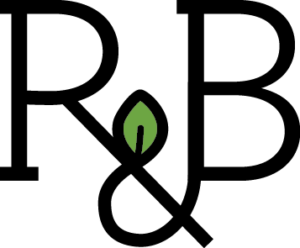How Google’s Exact Match Update Affects Your Campaigns
Google has gone and changed the rules with another exact match update to keywords once again. This isn’t the first time Google has rolled out an update to their exact match type, and it probably won’t be the last. Google is moving towards machine learning when it comes to search advertising with its smart bidding strategies leading the way.
Exact match used to be what it sounds like, with your keyword having to match exactly what the user is searching for. If your keyword was [coffee beans], it would only show when a user searched “coffee beans” not “coffee beans near me”, “coffee bean grinder”, or even “coffee beans”. This meant you had to think of every variation or misspelling the user could search to show up for the exact match, or leverage broad or phrase match and regularly check and add keyword variations based on the searches picked up in the query reports.
Google then updated exact match to include plurals, misspellings, and similar words which meant that exact match keywords would trigger if the user searched these variations of the keyword. [Coffee bean] would now be triggered for “coffee beans” or “coffee baen”. Then they updated to include word order and function words such as “for”, “the”, “from”, etc. That meant “bean coffee” and “beans for coffee” will also now trigger [coffee bean].
This latest exact match update also includes implied words, paraphrases, and words they deem have the same intent. Google will still try to match the query to the most relevant keyword, so if you already have built out keywords with similar meanings, like “beans for coffee”, it will trigger for that keyword even though “coffee bean” would be eligible.
So What Does it Mean?
Exact match keywords for [bathing suits] will now trigger for searches like “swimming suits” or “swim wear.”
This means that advertisers will have to spend less time creating keyword lists that include all variations he or she can think of, and using that time to maintain and monitor query lists, negative keywords, and other optimizations.
This exact match update also means that the match type is getting less exact, giving the marketer less control over what searches will trigger a keyword. It’s giving Google more control, with is what they are working towards with their strides in automation. This doesn’t necessarily mean its bad, but it can cause some headaches while you bulk up negative keyword lists in case anything irrelevant comes through.
With the advancement of Google’s algorithm and machine learning means that your keyword should be triggered if any of the words that aren’t your keyword changes the meaning. This means that “tailored suits” will not trigger your keyword [bathing suits] as that would change the meaning.
Modified Broad and Phrase Match Weren’t Exempt
Modified broad and phrase match were also updated to match queries with a similar meaning as the keyword. This will allow you to pick up more traffic. Google states that on average they saw about 4% more clicks with 85% of those clicks being from searches that were covered by existing keywords. The continued goal is to help your business catch potential searches that you may have been missing out on previously.
What Should You Do?
This change began to roll out in August but will continue to do so through October. During this time, keep a close eye on your search term reports, ensure Google isn’t showing your keywords for anything irrelevant and add new negative keywords as needed. If you are building new campaigns make sure you launch with campaign negative keywords in place to avoid modified broad, phrase, or exact match campaigns competing with either other.
Keep an eye on your bids and costs. You will be eligible for new auctions which means you could be competing against new competitors that will impact CPCs. Also, with being eligible for new auctions, you are eligible for more clicks increasing your spend. Monitor these as well as your search term reports to ensure the best performance for your campaigns.
If you are unsure of how to navigate through these match type updates, let us know and Root & Branch will be happy to help. Root & Branch is a digital marketing team with operations in Pittsburgh, PA and Jacksonville, NC that provides a wide variety of digital advertising and analytics services for B2C and B2B companies. Root & Branch is a certified Google Partner agency and focuses on paid search (PPC), SEO, Local SEO, digital reputation management, digital analytics, and social media management.





Leave a Reply
Want to join the discussion?Feel free to contribute!